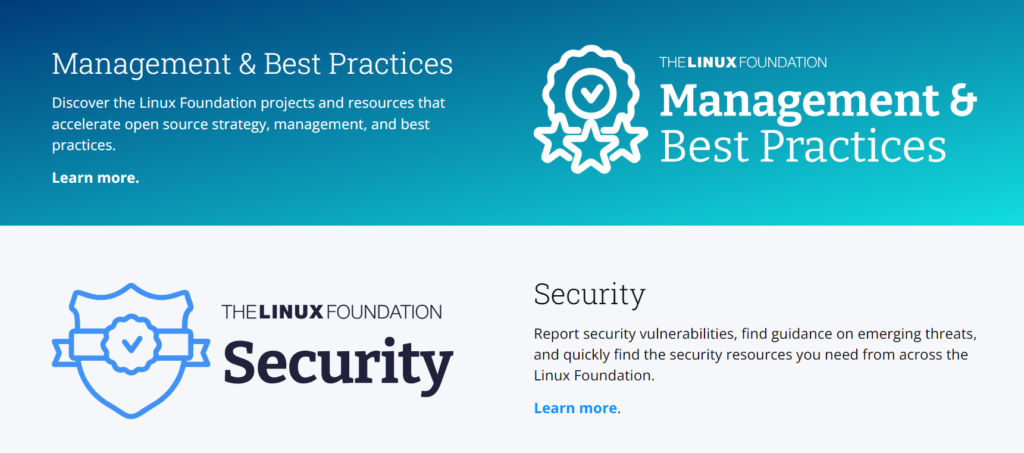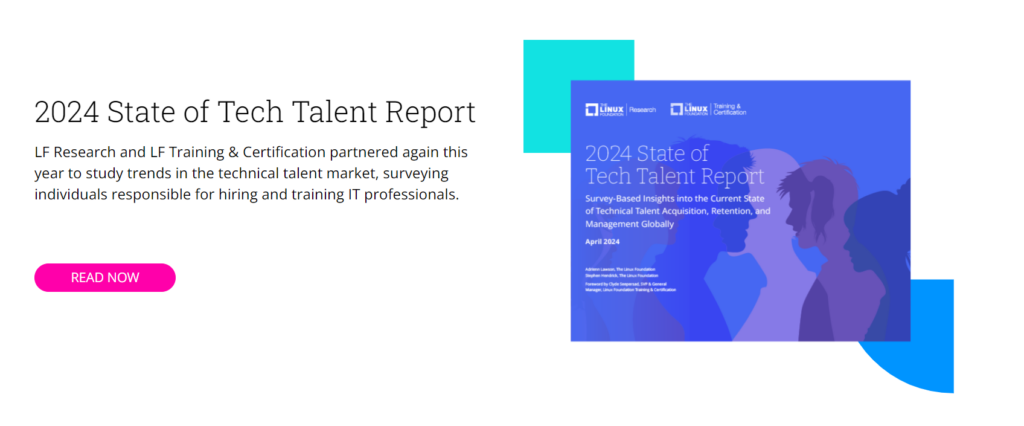Introduction
Choosing the right platform for enhancing your technical skills can be challenging with so many options available. Linux Foundation and edX are two prominent platforms offering quality education in technology, open-source software, and professional development. While the Linux Foundation focuses mainly on open-source technology and related certifications, edX offers a wide range of courses from top universities across various fields. This guide will provide a detailed comparison to help you decide which platform aligns with your learning goals.
Overview Linux Foundation and edX
Linux Foundation Overview
The Linux Foundation is a leading organization in the open-source ecosystem, focusing on fostering growth and collaboration among open-source communities. It was founded in 2000 with a mission to promote, protect, and advance Linux and other collaborative software projects.

Over the years, the Linux Foundation has expanded its scope to include a wide range of open-source technologies such as Kubernetes, Blockchain, Edge computing, and more.
Key Aspects:
- Specialization: The Linux Foundation is specifically focused on open-source technologies, offering specialized training and certification programs in areas like Linux, Cloud Computing, DevOps, and more. Its courses are designed to provide in-depth knowledge and hands-on experience, preparing learners for real-world challenges in the technology sector.
- Industry Collaboration: The Linux Foundation collaborates with some of the biggest names in the tech industry, including Google, IBM, Microsoft, and Intel. This collaboration ensures that their training programs are aligned with the latest industry trends and standards.
- Global Recognition: Certifications from the Linux Foundation, such as the Certified Kubernetes Administrator (CKA) and Certified Linux Administrator (CLA), are globally recognized and respected by employers. These certifications validate the skills and expertise of professionals in open-source technology, making them highly valuable in the job market.
- Community Engagement: Being at the heart of the open-source movement, the Linux Foundation provides access to a global community of developers, contributors, and experts. This community engagement allows learners to connect, collaborate, and stay updated with the latest developments in open-source technologies.
edX Overview
edX is an online learning platform founded by Harvard University and the Massachusetts Institute of Technology (MIT) in 2012. It offers a vast array of courses, including those in computer science, business, data science, engineering, humanities, and more. edX’s mission is to increase access to high-quality education for everyone, everywhere.
Key Aspects:
- Broad Course Catalog: edX offers a diverse range of courses, from short programs to full-fledged MicroMasters and professional certificates. With a catalog that spans various disciplines, learners can explore a wide range of subjects beyond just technology and open-source software.
- Partnerships with Top Institutions: edX collaborates with over 160 prestigious universities and organizations, including Harvard, MIT, Berkeley, IBM, and Microsoft. This partnership ensures that edX courses are designed and taught by leading experts and educators, maintaining high academic standards.
- Flexible Learning Paths: edX provides flexible learning options to accommodate different learning styles and schedules. Learners can choose from self-paced courses, instructor-led programs, and degree programs. This flexibility allows individuals to learn at their own pace and fit their education around their personal and professional commitments.
- Accredited Programs and Certificates: edX offers not only individual courses but also MicroMasters, Professional Certificates, and even full online degrees in collaboration with its partners. These programs are recognized by employers and academic institutions, adding significant value to a learner’s profile.

Linux Foundation vs. edX: Detailed Features
Linux Foundation Features
- Specialized Training Programs
- Focus on Open-Source Technologies: The Linux Foundation offers a wide array of courses specifically tailored to open-source technologies. This includes Linux, Kubernetes, DevOps, Cloud Computing, Blockchain, and more.
- In-Depth Learning: Courses are structured to provide a deep understanding of the technology, covering everything from fundamentals to advanced concepts. For example, their Linux courses range from basic system administration to advanced topics like kernel development.
- Industry-Recognized Certifications
- Certification Pathways: The Linux Foundation provides certifications that are highly valued in the tech industry. Certifications such as Certified Kubernetes Administrator (CKA), Certified Linux Administrator (CLA), and Certified Kubernetes Application Developer (CKAD) are recognized by employers worldwide.
- Career Advancement: These certifications help professionals validate their skills, often leading to better job opportunities, higher salaries, and career growth in the tech industry.
- Hands-on Labs and Real-World Projects
- Practical Experience: The Linux Foundation emphasizes a hands-on approach to learning. Courses include practical labs, interactive exercises, and real-world scenarios, allowing learners to apply their knowledge in a simulated environment.
- Sandbox Environments: Some courses provide sandbox environments where learners can experiment with technologies like Linux, Docker, and Kubernetes without the risk of affecting a live system.
- Expert Instructors and Community Access
- Industry Experts: Courses are designed and taught by leading experts, including contributors to major open-source projects. This ensures that the content is both relevant and up-to-date with the latest industry standards and practices.
- Access to Open-Source Communities: Learners get the opportunity to engage with a global community of developers, contributors, and professionals in the open-source space. This community access fosters networking, collaboration, and continuous learning.
- Flexible Learning Paths
- Self-Paced Learning: The Linux Foundation offers self-paced courses that allow learners to study at their own pace, making it easier for working professionals to balance their education with other commitments.
- Course Bundles: Offers bundled courses and certification programs that provide a more comprehensive learning pathway, often at a discounted rate.
- Enterprise Training and Solutions
- Corporate Training: Provides tailored training programs for enterprises looking to upskill their teams in open-source technologies. These programs can be customized to meet the specific needs of an organization.
- Open-Source Initiatives: Through various initiatives, the Linux Foundation works closely with companies to drive open-source innovation and collaboration in the industry.
edX Features
- Diverse Course Catalog
- Wide Range of Subjects: edX offers a broad catalog of courses across various disciplines, including Computer Science, Business, Data Science, Engineering, Humanities, and more.
- Multi-Level Learning: Courses are available for all levels, from beginner to advanced. Learners can start with introductory courses and progress to more advanced topics, such as MicroMasters programs and Professional Certificates.
- Collaboration with Top Universities and Organizations
- Prestigious Partners: edX partners with over 160 prestigious institutions, including Harvard, MIT, Berkeley, and IBM. This collaboration ensures that the courses are designed and delivered by leading educators and industry professionals.
- Accredited Programs: Offers accredited programs like MicroMasters, which are recognized by employers and can sometimes be used as credit towards a full degree.
- Flexible Learning Options
- Self-Paced and Instructor-Led Courses: edX provides both self-paced courses that allow learners to study at their own convenience and instructor-led courses with set schedules for a more structured learning experience.
- Audit for Free: Many courses on edX can be audited for free, giving learners access to course materials without any cost. However, a fee is required for a verified certificate.
- Interactive and Engaging Learning Experience
- Video Lectures and Quizzes: Courses typically include high-quality video lectures, interactive quizzes, and assessments to enhance understanding and retention of the material.
- Hands-on Projects: Many courses, especially in the technology and computer science fields, include hands-on projects and labs, enabling learners to apply what they’ve learned in a practical setting.
- Peer Interaction: edX facilitates interaction through discussion forums where learners can engage with peers, ask questions, and collaborate on learning projects.
- Variety of Certification and Degree Programs
- Verified Certificates: Learners can earn a verified certificate upon completing a course by paying a fee. These certificates can be shared with employers and added to professional profiles.
- MicroMasters and Professional Certificates: Offers MicroMasters programs and Professional Certificates that provide more in-depth knowledge and can serve as a stepping stone towards a full degree.
- Full Online Degrees: In partnership with top universities, edX offers fully accredited online degree programs, such as Master’s degrees, allowing learners to pursue higher education remotely.
- Financial Aid and Accessibility
- Financial Assistance: edX offers financial aid to eligible learners, making quality education more accessible. This helps lower-income students and professionals access advanced learning opportunities.
- Mobile Learning: edX provides a mobile app, enabling learners to access course materials and continue their studies on the go.
- Corporate and Enterprise Learning Solutions
- edX for Business: Provides corporate training solutions to help companies upskill their workforce. This includes access to a curated list of courses and programs that align with business goals and employee development needs.
Pricing
- Linux Foundation:
- Course Fees: Individual courses typically range from $299 to $999, depending on the complexity and certification level.
- Certification Bundles: Offers bundled packages combining courses and certifications at discounted rates.
- Scholarships and Discounts: Provides scholarships and occasional discounts to make learning more accessible.

- edX:
- Course Fees: Offers both free courses and paid courses. Paid courses range from $50 to $300 for a verified certificate.
- MicroMasters Programs: Advanced programs like MicroMasters can range from $500 to $1,500.
- Financial Aid: Offers financial assistance for eligible learners, making education more affordable.

FAQ
Which platform is better for open-source technology?
Linux Foundation is more suitable for those looking to specialize in open-source technologies, offering in-depth and hands-on courses with industry-recognized certifications.
Can I take free courses on these platforms?
edX allows you to audit many courses for free, though you need to pay for a verified certificate. The Linux Foundation primarily offers paid courses, but occasionally provides free learning resources and webinars.
Do both platforms provide certifications?
Yes, both platforms provide certifications. The Linux Foundation offers certifications specific to open-source technology, while edX offers certificates for a broader range of subjects.
Can I learn at my own pace?
Both platforms offer flexible learning options. Linux Foundation courses often include hands-on labs with flexible deadlines, while edX provides both self-paced and instructor-led courses.
Which platform offers more comprehensive support?
The Linux Foundation offers support geared towards the tech industry, including access to a community of open-source professionals. edX provides course support through forums, peer discussions, and occasional live sessions.
Conclusion
The choice between the Linux Foundation and edX depends on your learning goals. If you’re specifically interested in deepening your knowledge in open-source technology and obtaining industry-recognized certifications, the Linux Foundation is the preferred choice. However, if you’re looking for a broader range of courses across various disciplines, including the flexibility to audit courses for free, edX is an excellent option. Both platforms provide high-quality education tailored to different needs, helping you advance your career and knowledge base in the technology sector.


